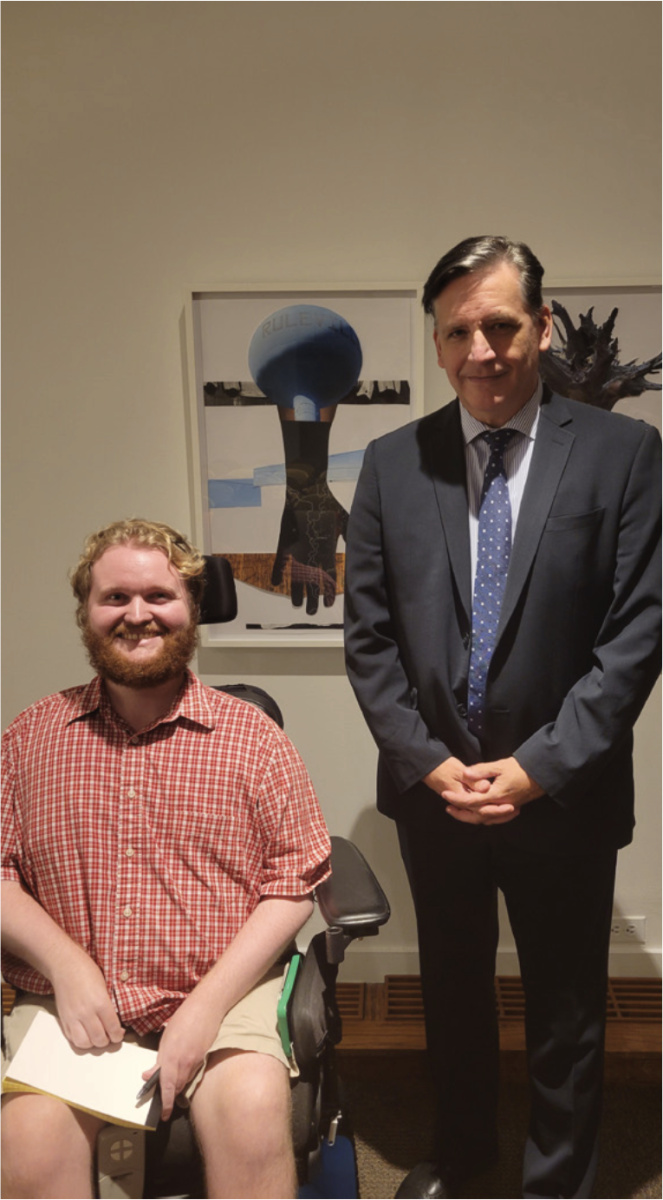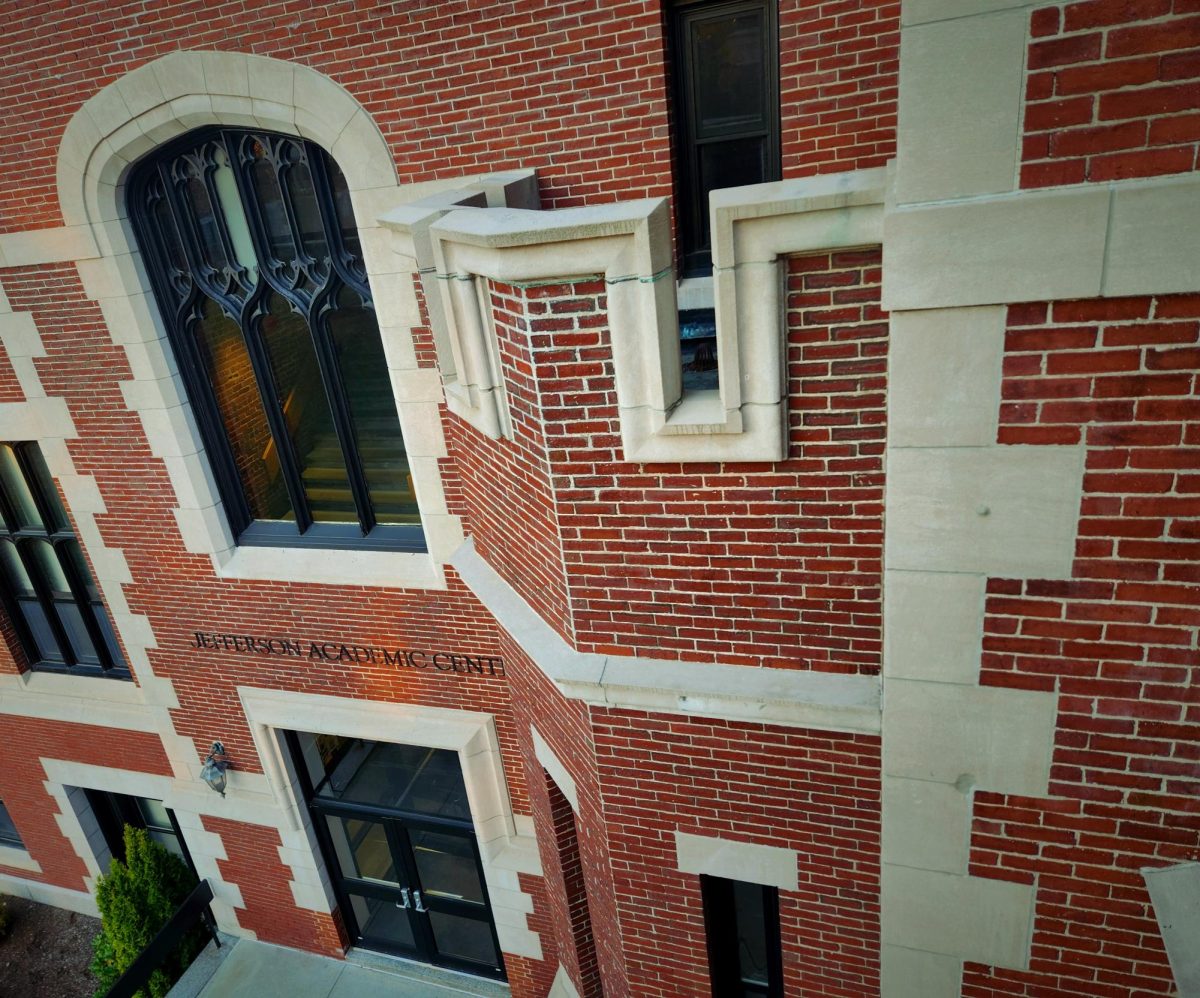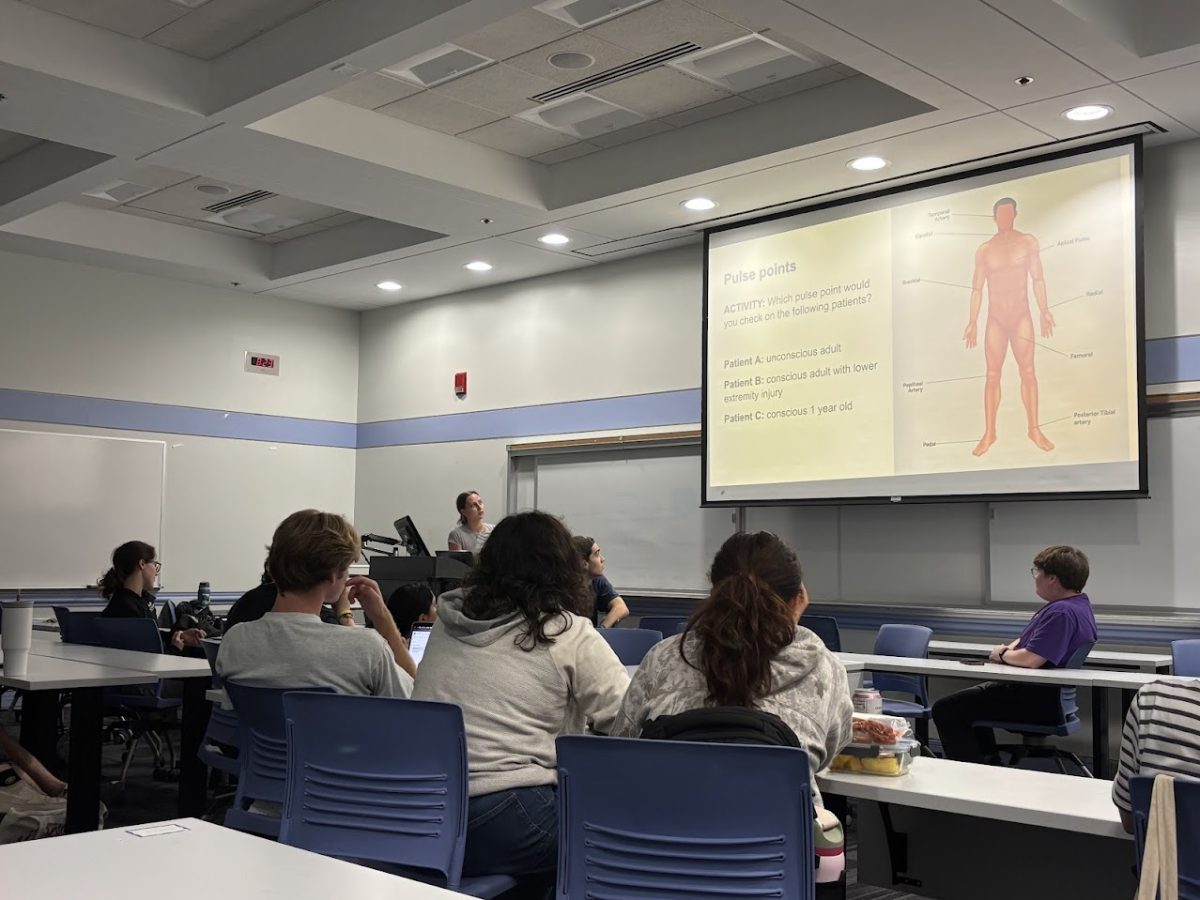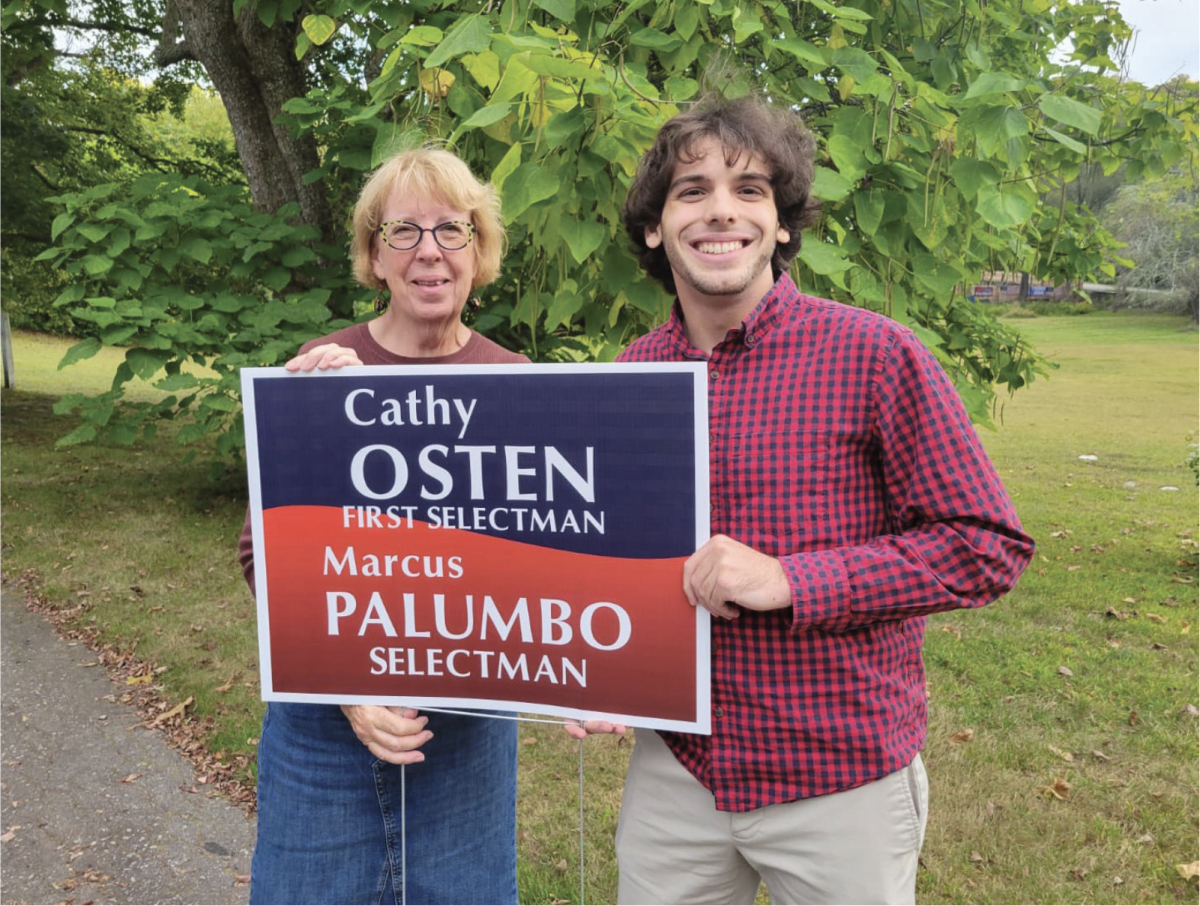The Menstrual Equity Alliance (MEA) is a student organization that promotes inclusivity and educates the Clark community on menstrual equity.
Starting originally as a subcommittee of the student council, MEA’s main goal is to provide free and accessible products for all menstruating students. Now, they not only focus on providing products, but also education and running donation drives to combat period poverty. But their main goal is still the same as always.
“We are creating a positive environment to discuss menstrual health and break down the stigma that surrounds it,” Amelia Clark ‘26, MEA co-president of the club, says.
The club is responsible for purchasing and hand-distributing all of the menstruation products on campus. Products are currently available in all dorm halls, with the exception of Maywood, and Dana Commons.
There have been a number of issues with the dispenser locations, according to Clark. Maywood’s dispenser had been broken, and then fixed by MEA, and then disappeared after spring break of this year. Dispensers in the University Center were also removed this summer.
Last spring, the Menstrual Equity Alliance entered a pilot program with Citron Hygiene, which partners with universities to help end period poverty around college campuses. Funded by a grant from Clark University Student Council (CUSC), the club entered into the monthly subscription, where Citron would install and fill the chosen dispensers.
Through a discussion with Dean Morgan Acosta, the pilot program was installed in the University Center, where there was believed to be the most foot traffic. For the entirety of the spring semester, Citron replaced all of the products in the two dispensers in the building.
Normally, an average of ten students distribute the pads and tampons by hand to all of the dispensers, but with timing and getting access to spaces, especially dorm halls, it has gotten increasingly difficult for them to be able to distribute in a timely manner, especially when the restocking forms keep piling up. Having Citron employees refill and restock the products in the UC pretty regularly helped the club, and the school, out. No one had to wait for a busy student to have some free time to refill basic necessities for Clark students.
“We noticed that the dispensers ran out in the University Center pretty quickly, and it was really nice to see the campus community used the products that were provided through the program” says Ali Civilikas ‘26, MEA co-president.
The pilot program continued until the end of the fiscal year, refilling the dispensers monthly with Citron’s stalk of Aunt Flow pads and tampons. After little to no contact with Citron, the program ended promptly in May, and Citron had uninstalled the two dispensers in the University Center.
After being told to take a pause until the fall semester started, in mid-July Citron called MEA co-president A. Clark, the primary contact for the contract, and told her that they were at Clark University to take back the dispensers. Due to lack of knowledge about the program ending and because of contract disputes with Citron and SLP, MEA did not have a plan in place yet to replace the University Center dispensers.
Since Citron’s contracts were a minimum of three years, MEA was not able to renew. Per SLP and CUSC guidelines, student organizations cannot sign contracts that last over one year. no Because of students rotating out every year or so, no student can sign the three-year commitment. Despite this, Clark. was still the primary contact with Citron, for a contract she wasn’t allowed to sign.
“Clark’s campus is going to be menstruating for more than three years,” Clark said. “It’s frustrating, because we want this (club) to outlast us (the MEA E-Board).”
After the summer ended, the club jumped right into planning the semester, including trying to get constitutional funding for the club. With their limited budget of around $2,600 a year, they purchase about $515 dollars worth of pads and tampons, which evens out to about 1500 pads and 500 tampons, says Clark.
After meeting with Maria-Elisa Gallant, the Associate Director of Student Engagement and Equity, and the CUSC Executive Board it was determined that they could try and pursue constitutional funding in the beginning of September, starting with getting as many quotes as possible for costs of dispensers and restocks.
A few weeks later, the treasurer of MEA received an email from Robin Bozik, Student Engagement Office and Budget Manager, stating that the purchase request for pads and tampons from Aunt Flow could not be processed. With their limited budget, they would need to both supply products for all menstruating students on campus and put on events.
After meeting with Bozik about their failed purchase process, it was determined that MEA was in a purchase freeze. Therefore, they were not eligible to purchase any menstruation products for campus. According to a Forbes article, 23 percent of students experience period poverty, meaning that they cannot afford to purchase menstruation products for themselves. Clark, or any other college campus, is no exception to that.
“We are trying to get a permanent solution for something that should be free, for something that we should have access to on campus, that honestly the administration should be pushing for… I don’t understand why the university isn’t funding this.” A. Clark said.
As the Menstrual Equity Alliance fights for constitutional funding, they are also fighting for a safe space for menstruating students, similar to the space that Choices has. Focusing on education and access, this space would be able to provide menstruation products in a location that is easily accessible to all students. Not only would there be single-use products like pads and tampons, but also reusable ones, from menstrual discs to period underwear.
“We usually give out free reusable products when we table at the involvement fair, and students always exclaim how they didn’t know those were an option,” Civilikas said.“They love them.”
The co-presidents say they are in awe of the support they have received from students who love their products, and said it makes them more determined than ever to provide a safe, and accessible space for menstruating students.







